by Jenny Rose | Feb 3, 2024 | Connection & Community, Emotional Intelligence
For me, February 1st is the first day of spring. I know it’s early. I like it that way. I like the anticipation, the half-intuited first stirring of life under the soil, under last year’s debris, the slow, cold wakening of seeds, stiff in their dormant shells but quickening, murmuring, “Is now the time …?”
The birds are the first harbingers for me. Here, in this place, a small city in central Maine, it’s the crows, the jays, the cardinals, and the little tufted titmice. The crows and jays complain in harsh voices of salt-encrusted pavement, tired snow over lumpy ice, the steely cold. Cardinal pairs flit in my bare, bedraggled forsythia, and visit the feeders, a startling splash of color in the grey and bone landscape.
The titmice sing. Joyful, bursting little songs of nests and eggs, of green growth and warming light. The first spears of bulbs, the budding lilac, the luscious magnolia petals are in their song, though those things are only memories and hopes in the February garden.
(As I edit this, the first goldfinch outside the window.)
(On the morning of the day I publish this, at dawn, the chickadee’s two-note spring call.)
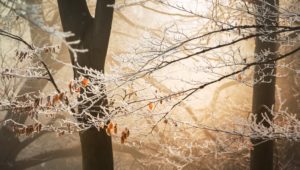
Photo by Ales Krivec on Unsplash
I have been feeling quiet. I’m burning down the last two Yule candles, gradually bringing out those of white and ivory, scented with lavender and herbs. Midwinter festivities are packed away, red table linen and warm-colored throws washed and folded for another season. I’ve been spring cleaning, making glass shine, mopping the scarred old floor, washing cupboards and doors. I walk to and from work bundled up in wool and fleece, the cleats on the bottoms of my boots clicking on the bare pavement and keeping me anchored in the ice and snow. The cold makes my eyes water, my nose run, and my ears hurt. At night, after closing the pools at 6:00, I drop a fluorescent sash around my backpack and chest and hold a small flashlight in the hand closest to the traffic, a white LED light shining ahead, a red flashing light showing from behind.
At times sleep has been thin and wrinkled this winter. In other periods of ebbing sleep I’ve felt frantic and exhausted, but this time I don’t mind. The long cold nights are restful whether I sleep or not, lying comfortable and warm in my chilly room, cocooned in linen sheets and a down comforter. I think of stars overhead, the moon on her path, ebbing and flowing, the tides lapping against the stony coast not so very far away. The hot water pipes in the radiators pop and click reassuringly.
I remember ice skating as a child, gliding smoothly over frost and snow, soaring over magically transformed water, cold biting like the crystalline sound of the sharp-edged skate blades, but warm in body from the rhythmic thrust of my legs. I haven’t skated in more than 50 years, but I remember it now, the freedom, the rhythm, the pleasure, the sense of inconsequence, as though nothing mattered, all was easy and graceful and flowing.
As the old year and winter inch over thresholds into something new, I am companioned by memories. This time last year is a constant whisper in my mind, because this time last year my mother was dying. I am not preoccupied with any time before that. After a lifetime of striving to understand and repair family history and relationships, I have surrendered to what was and what is now over. My battered empathy lies tranquil, not ravaged and torn but manageable, docile, turning over the pieces of last year with gentle intention.
In the clarity of cold winter, in my internal peace, I am alive, aware, receptive in new ways. I learned much in the last year, but intellectually. There was not time for more. The intensity of the situation, the constant crises, the long distance management, the anguish, the helplessness, the impossible tasks, the planning, demanded everything I had. I did not have time to process, to think long and deeply. I did not have the strength for it.
But now, now the past year echoes within my bones and flesh and memory. The ghosts of my feelings and experiences are miraculously without anguish, without horror, whispering a half-remembered story from childhood in which everything works out in the end. 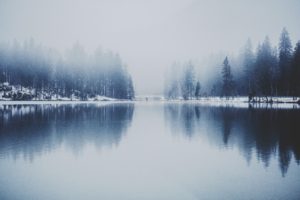
Mom herself does not haunt me. She wouldn’t come back to me in any case, but even before that thought has formed I realize she wouldn’t come back to any person. If she is in a place we can call somewhere, she’s with her animals. No one who knew her well or loved her could doubt it. She wouldn’t come back to anyone, not just me. I knew it before, but now I feel it, and the feeling is gliding, no friction, just freedom and clean, cold air. I can picture her face, laughing, joyful, with manes and tails, paws and shining coats, flopping tongues and pricked ears all around her. And I’m happy for her happiness.
A year ago I was home again after my first trip back to Colorado. I wrote on the ice, on the surface of things. I think without that I might not have stayed the course. It was my lifeline. I was surviving.
A year ago I noticed but did not feel the presence of the birds. The first weeks of Spring came and went; I was focused on the next trip to Colorado, on arranging an estate auction, on supporting my brother in finding renters for Mom’s home, on maintaining communication with Mom’s community, her caregivers, and family. I had no attention for anything but calls and texts as her condition and behavior worsened.
I was not here in April when the magnolia tree began to bloom. I did not kneel in the cold mud of the garden, rejoicing in the chilly sun as the bulbs first thrust up through the softening soil. We were dismantling Mom’s life in Colorado, reading the intimate stories of her history, her loneliness, her fear, and her private struggles. Revealing and releasing stories she never meant anyone to know, casting her life’s possessions and debris into the world, one way or another.
My brother was heroic. The community was stalwart. One step at a time, one item at a time, one mile and minute at a time, we got through it. Somehow.
Home again in May, and back to my life, but only in the motions. Some intuition kept my focus narrow, looking only at the next task, the next step. I gave myself time in the garden, time in the sun. I moved my body. I ate, and worked, and showered, and wrote, releasing my razor-sharp feelings and experience gingerly in words, like so many chips of ice. Now and then I found a moment of peace, a small oasis in between calls and texts, in between Mom’s querulous voice and caregiver check-ins, in between broken nights. But I did not try to plumb the depths of myself. I knew it was not time and I hadn’t the strength to stay safe.
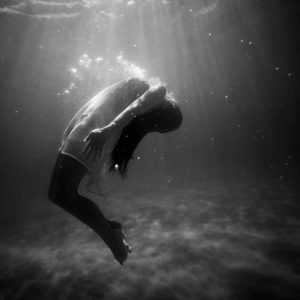
Photo by Christopher Campbell on Unsplash
Summer bloomed fiercely and slowly withered as Mom did, until she was released in August.
She was released, but the work of wrapping up a life went on and on, the majority falling on my brother’s shoulders. He soldiered on. We signed and notarized papers, transferred ownership, sold the house, thought about taxes. I dealt with family jewelry and wrote an obituary, and chose a picture for the local paper.
Autumn came. On Halloween, I thought a year ago today she fell and broke her hip and it all began to end …
Winter came, and passed.
Spring is on the threshold. It feels like my first spring in this new house of ours. And now the ice begins to melt. Now I am not skating on the surface of things because the surface softens and melts, warms into depth and movement, into living water, cleansing and healing. The broken edges, the shards, blunted in the sun before melting away.
Water has ever been my strength and my safety. I take off my skates and float in my depths, my memories weightless, my ghosts drifting quietly, the echoes of the past fading away into peace as I allow them to brush against me, perhaps not for the last time – who knows? I will not be afraid if they visit me again. They are familiar now, and will melt again, as winter melts into spring.
“Ice holds memories … great islands of ice … hold many stories, but they’re just the fragments. Most of the stories are gone.”
—James Roberts at Into the Deep Woods
Questions:
- What signals spring to you?
- What intense experiences have you had to unpack slowly, over a long period of time?
- How do you manage your intense feelings?
Leave a comment below!
To read my fiction, serially published free every week, go here: 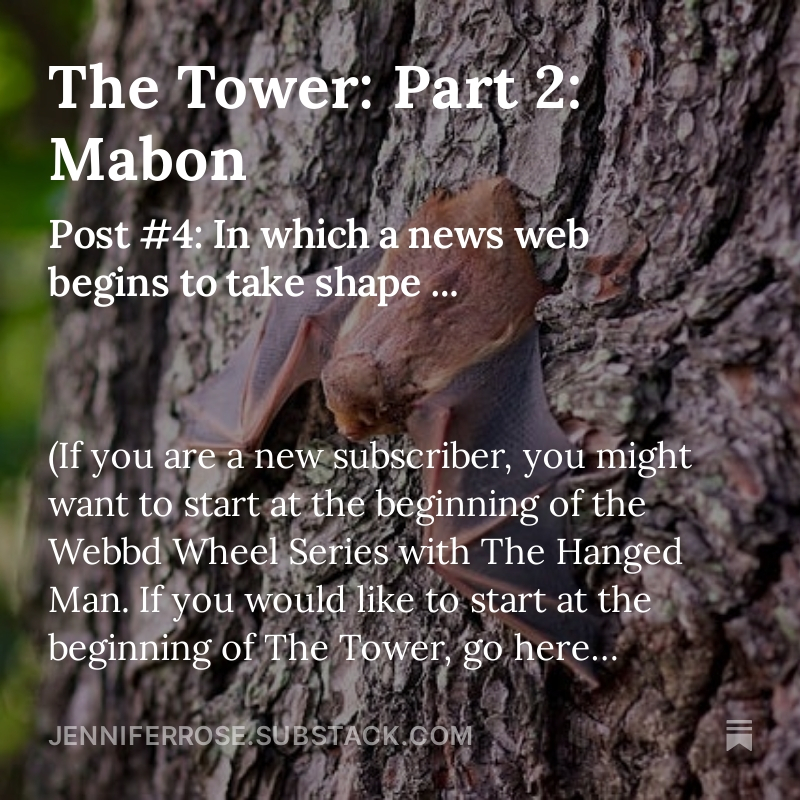
by Jenny Rose | Dec 9, 2023 | A Flourishing Woman, Creativity
Turning and turning in the widening gyre
The falcon cannot hear the falconer;
Things fall apart; the centre cannot hold.
–From “The Second Coming” by W.B. Yeats
The line “the centre cannot hold,” has been running through my mind for several weeks, through all the time I’ve been sick with COVID and whatever nasty virus followed in its wake, and my slow recovery. “The centre cannot hold.” I found a quiet moment and looked it up. I knew it was poetry, but I couldn’t remember who wrote it or what the poem was. Thank you, Google!
W.B. Yeats, of course.
I suppose it’s a common experience to feel we’ve lost our center, our groundedness, when someone significant in our life dies, as my mother just has. I’ve fought against the feeling because over the years I’ve worked so hard to individuate from my mother, to reclaim my right to center my life around something other than her. If she was not the center of my life, why do I feel things have fallen apart since she died in August?

Photo by NASA on Unsplash
Did I fail to reclaim my power, define myself and my value apart from our relationship? Has all my work been for nothing? Are my healing and growth an illusion?
I have been afraid of answering these questions.
When I reread the first three lines of the poem, I first imagined myself as the falconer and the falcon as … my soul? My joy? My wisest self? My intuition? All those and none of those, exactly. The falcon seemed like a piece of myself I lost a long, long time ago when I was child, a piece I struggled through many years and miles to find and reclaim, and now is lost again. It can’t hear me, and I can’t hear it. It feels unbearable. My center didn’t hold. Why didn’t it hold? Did I do something wrong? How do I call it back to me?
And I want to call it back, not haul it back by its jesses. In fact, why is the falcon restrained at all? If it’s truly mine and we belong together, why is it leashed? The idea disturbs me. I want it to be free. I’ve worked too long and hard for my own freedom to relish restraining any other creature. I note I assume the falcon is leashed. The poem doesn’t explicitly say so. Interesting.
Maybe my assumption of leash and jesses reflects all the ways I’ve restrained myself. As a child I internalized restraint. I had to. Everyone else felt free to throw self-control to the winds. Is my feeling of my center not holding asking me to release myself further? Is it time for deeper faith and trust in myself?
As I typed those three lines onto the page to begin this post, I imagined another picture in which my mother was the falconer and I the falcon. She no longer holds the leash. I am free. I have flown away from the only center I was allowed to have and now I’m overwhelmed by my freedom. I don’t know how to be wild. I don’t know how to live without the restraining leather jesses around my slender legs. What if I can’t? What if I perish? Must I find a new falconer to hold the end of my leash? What if my freedom is a mistake and I’m not fit to be free? What if I’ve lost the ability to fly free?
Ugh. Goosebumps.
Don’t get carried away, I say to myself. Slow down. We’re talking about emotional freedom versus physical freedom. You’ve been flying in an ever-widening gyre for years.
What’s changed is that leash, woven of blood and bone and love, woven of years and empathy and need, guilt and shame and obligation, too strong to ever be severed … except, it turns out, by Death.
What do we center around?

Photo by Bryan Goff on Unsplash
It changes, doesn’t it? In my first 20 years I centered around my family of origin. When I was in my 20s and beyond I centered around a man and my children. Work was in there, too. And my family of origin, particularly my mother, who was not pleased to be sharing the center. The proverbial 3-ring circus. It went on like that until my children emancipated and, to be honest, for some time after. Then, as they slowly faded out of my center, being far away and engrossed in their own lives, I centered around some man (but not the same one; I’m a slow learner) and my mother. Slowly, writing began to nudge for a place in the center as well.
This created real problems. Mom could never tolerate sharing. I was used to her competition with the kids and whatever man I was involved with but the writing would have created a real threat, so I hid it. The more I hid it, kept it inviolate and safe from outside sabotage, the more I centered around it, and the more I centered around it the more threatened she felt, though I’m not sure her reaction was conscious and she had no idea what she was fighting against. She just knew she didn’t have all of me anymore.
She was right to feel threatened, because writing eventually tore me away from her physically and geographically, a thing that had never happened before and a last betrayal she never forgave.
In the stresses and strains of the last couple of years, I lost writing out of my center. Oh, I still did it. I blogged and serial published. I journaled. But as Mom’s health and sanity crumbled, she became my center once again, this time to the exclusion of everything else. Work (generally part of the center for all of us) competed, keeping me sane, physically fit, and anchoring me into a community of friends, but Mom once again became the primary gravitational pull in my center. My days and nights were full of her. I had less and less respite and the intensity increased daily, winding around my life more and more tightly, and then …
She died. In the middle of the night, a night in which I lay awake in Maine while my brother sat vigil with her halfway across the country in Colorado.
When I write it all out like this, I can understand why I’ve felt so dazed. I can feel some grace for myself.
The one thing that’s always been in the center is gone.
“The centre cannot hold …”
Being too old to have any desire to put a man back in the center (been there, done that), and loving my job while realizing it’s not big enough to define me, I turn once again to the truest, most joyful, wildest part of my life: writing.
And that’s scary. If I let writing take all the space, time and energy in the center, what will happen? I don’t even make money with it!
I make joy with it instead. Joy, connection, contribution, authenticity. Writing is not a black hole of failure. It does meet my needs. When I write, I actually feel good enough and sometimes even better than that! No wonder I feel bewildered.
As I write this, it occurs to me for the first time to not only allow things to fall apart, but to participate actively in the falling away and, falling down. To dance in the ruins, even as I weep. I’m reminded of a Rumi quote:
“Dance, when you’re broken open. Dance, if you’ve torn the bandage off. Dance in the middle of the fighting. Dance in your blood. Dance when you’re perfectly free.”
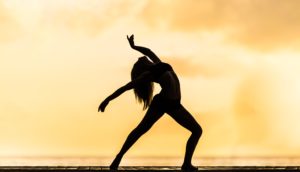
Photo by David Hofmann on Unsplash
Things fell apart. The center did not hold. Change, in other words. Life. Which is to say Death.
So, an unexpected ending to this post. Things are falling apart. I’m ready to stop trying to hold them together. It’s time to let go. Mom already has. Now it’s my turn. What lives in our center changes as we change. It’s time now for me to choose my center, choose it freely without guilt or shame.
Sometimes things fall apart and the center cannot hold.
So we find a new one.
Questions:
- What’s in your center?
- If you were free to choose your center, what would you chose?
- How many things compete for your center? Could you reduce the gravitational pull of your center?
- If your life changed in some dramatic way and you were forced to find a new center, how would you go about doing that?
- Is your center all about others, or do you have something there for yourself, too?
Leave a comment below! To read my fiction, serially published free every week, go here: 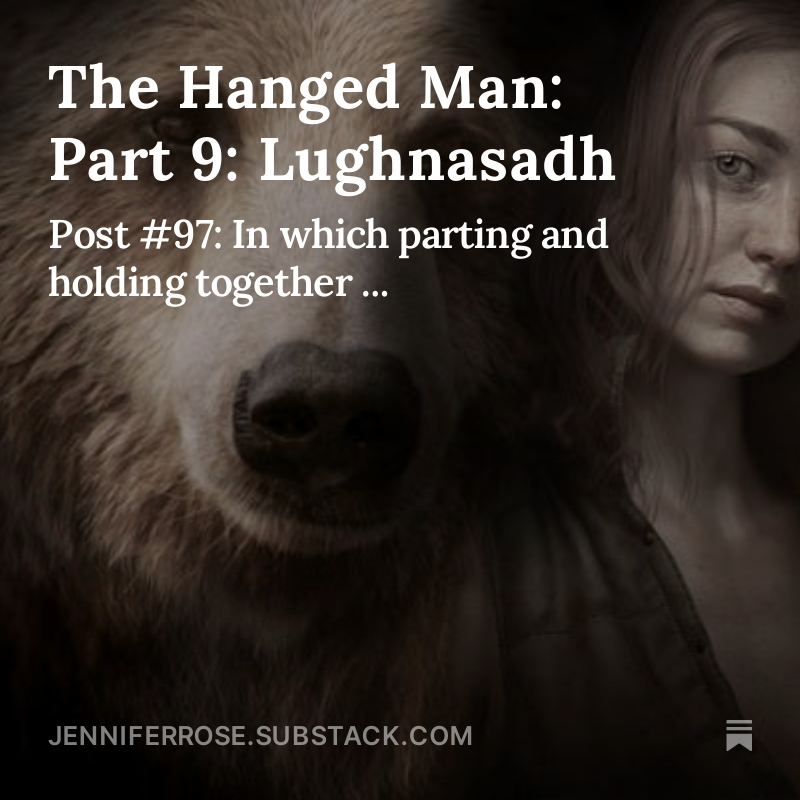
by Jenny Rose | Nov 25, 2023 | A Flourishing Woman, Body
In the last few months I have noticed a pattern as I teach private swim lessons.
It first caught my attention over the summer as I worked with a six-year-old in her home pool. She and I have worked together for some years. We have a good relationship built on trust and affection. She’s strong and big for her age, and she’s a tiger, assertive, competitive, stubborn, determined. She’s focused on progression through Red Cross Learn-to-Swim levels. She’s less interested in the skill-building than the card proclaiming her a Level ___ swimmer, and she wants the card now.

Photo by Chris Kristiansen on Unsplash
I started out her summer lessons the way I always do, with a review of the skills I knew she had already mastered. Then we began working on next-level skills. Except things fell apart. I began to feel frustrated. Her behavior, instead of sunny and eager (she was always waiting in the water for me until this), became oppositional. She stopped laughing with me. She stopped looking me in the eye. She stopped cooperating. She wouldn’t follow directions, she had to be coaxed into the water, and suddenly it wasn’t fun for either of us.
Her mom and I were puzzled. We agreed to take a couple of weeks off and regroup. My little student seemed relieved. During that time I thought about things and my student had some talks with her parents as we all tried to figure out what was wrong. Young children often lack the language to communicate their difficulties. Adults need to decode the behavior and provide the language.
I threw away my lesson plans for the next level and worked on games incorporating skills she already had. I made sure she knew our next lesson would be games. When I got to her house, she was able to tell me, with her mom’s support, that she didn’t want to learn some of the new skills I was presenting.
I suddenly recalled I was working with a six-year-old. Big, strong, determined, yes. But six years old! The level she and I had reached is typically a skill set nine to eleven-year-olds are working on.
Too much, too fast. Her competitiveness and determination had outstripped her physical and developmental ability, and in my delight in teaching and sharing my love for swimming, I simply forgot what was age-appropriate.
So, we spent the summer playing games and giggling. We practiced all the skills she already had, and we worked on some new ones, too, but she didn’t know that because they were games. If she didn’t like the game, we stopped immediately and did something else. She made up some games, too. We had a lot of fun. She waited in the water for me and pouted when our lessons ended. We were back in business.
I spoke privately with her mom and we agreed to slow down. This little girl needs time. Time to grow. Time to develop. Time to play and simply enjoy the water. Next summer she’ll be seven. If I work with her again, I’ll pay attention. She may be ready for next-level skills. She may not. But this time I’ll adjust more quickly, and she’ll have better language skills, too.
I have been observing this pattern during the autumn months as I teach. Sometimes kids want to learn more but we don’t have a lot more to teach them. Sometimes they want to learn more, or their parents want them to learn more, but they’re simply not ready physically or developmentally. An activity that used to be fun and easy starts to be stressful. Parents are frustrated. I’m not having fun. Children are uncooperative.
I’ve been thinking about time lately because in October I caught COVID for the first time and I’ve been sick ever since. I took good care of myself during COVID, in part because I was too sick to fight it. As I began to feel better, I slowly started exercising again. I didn’t want to slide backwards or develop a secondary infection. I was worried about weight loss and weakness, as well as my fatigue and lack of endurance. I gradually began walking to work again, and doing a mile at a time on the elliptical. I even got back in the pool and did an easy half a mile instead of my usual ¾ of a mile with intermittent sprinting.
I was just beginning to feel better when I got sick again. Not with COVID and not as sick, but I filled up with congestion and started to cough.

Photo by Travis Bozeman on Unsplash
So, it’s been doctor visits. More nasal swab testing. Masks at work. Shortened shifts. Teaching lessons from the deck rather than in the water. No gym. No swimming. No walking to work.
The doctor keeps saying rest. My friends keep saying rest. I am resting, I swear it! I don’t have a lot of choice. If I do housework for an hour I’m worn out. I can rest, but sleep has been hard to come by because when I lie down I start to cough and nothing really stops it. The nights have been hard. And haunted.
I’ve been dreaming about my mother, who died in August. Bad dreams, where she’s in trouble and I’m trying to rescue her. Often we’re in water, which is ridiculous because Mom hated the water. Often we’re in the dark, but I can hear her end-stage breathing and death rattle and I grope through the dream, trying to find her. Sometimes I find her and get my arms around her, but then I wake up. In fact, Mom hated to be touched and I never held her the way I do in my dreams. Only in her deep dementia would she tolerate touch. The dreams hurt me with their promise of loving contact that never happened and now never will happen. I doze in my recliner and wake up weeping.
I want to move, to be at work, to go out and rake leaves, to scrub the kitchen floor. Something. Anything. I trail into the kitchen, make another cup of tea, have another half cup of chicken soup, read a few pages, write a bit. I get in the car to go to work instead of walking (everyone at works frowns at me when they find out I walked), and I’m resentful. I want my life back. I want my strong, fit body back. I want my energy back. I want it back NOW.
And, clearly, I need time. I don’t want it … but I need it. I suppose it doesn’t much matter if my experience is post-COVID, or post-whatever-this-last-virus was or grief or trauma or just getting old (!). Whatever it is, I am not in charge, and my stubbornness and determination are presently more than my physical and perhaps emotional reality can live up to.
Time is enigmatic, isn’t it? We say time heals all wounds. Does it, or does it just give us a chance to process our wounds, to clean them out, breathe on them, bind them up and learn to live with them? How can I help myself? What am I supposed to be doing with all this unwanted time? I think of my little swimmer. She doesn’t need to do anything. She’s perfect. She simply needs to give herself some time to grow. That’s it. Time does the work. Our job is to allow it to do the work.
This is unsatisfying. I’ve read that rest is productive, which makes me mad. It cannot be true. I can’t remember ever feeling loved, valued, or wanted because I rested well. Quite the reverse. (On the other hand, when has unceasing production ever worked to buy love, value, or a sense of being wanted? Never.) I have a feeling Time doesn’t need me to do anything, at least not anything I’m not already doing. Another cup of tea. All the calories I can take in. Rest. Tears. Dreams. Writing. Reading and dozing on the couch with the cats.

Photo by Benjamin Combs on Unsplash
Time.
I worked two days Thanksgiving week before having five days off. My physical upper respiratory symptoms are certainly better. Normal sleep patterns are returning. Yet a dragging fatigue and bewildered feeling remain. “It’s detox,” my massage therapist says. “It’s transformation,” the wisest, deepest part of me says. “It’s rebirth,” my Tarot cards say.
It takes time. Everyone agrees on that one.
I remember my little swim student, outraged tears in her eyes. “I’m still a Level ___, right? You won’t take away my Level ___?”
“No, sweetie. You haven’t lost anything. It’s all still yours. You’re just not quite ready to go on to the next level. You need some time …”
I hugged her and gave her a kiss, told her I’d see her again next summer if she wanted lessons. She believed me, reluctantly. She’s in a dance class this winter. That will distract her, I hope.
Now I need to put my arms around myself. My life is not passing me by. I’ll exercise again. I’ll put the weight back on. I’ll get strong, sleep well, stop coughing.
I just need some more time.
Questions:
- Do you think rest is productive? In what way(s)?
- Do you think of time as an ally or an adversary?
- Do you think time actually heals, or does it just help us come to terms with what is?
- What does rest mean to you?
Leave a comment below!
To read my fiction, serially published free every week, go here: 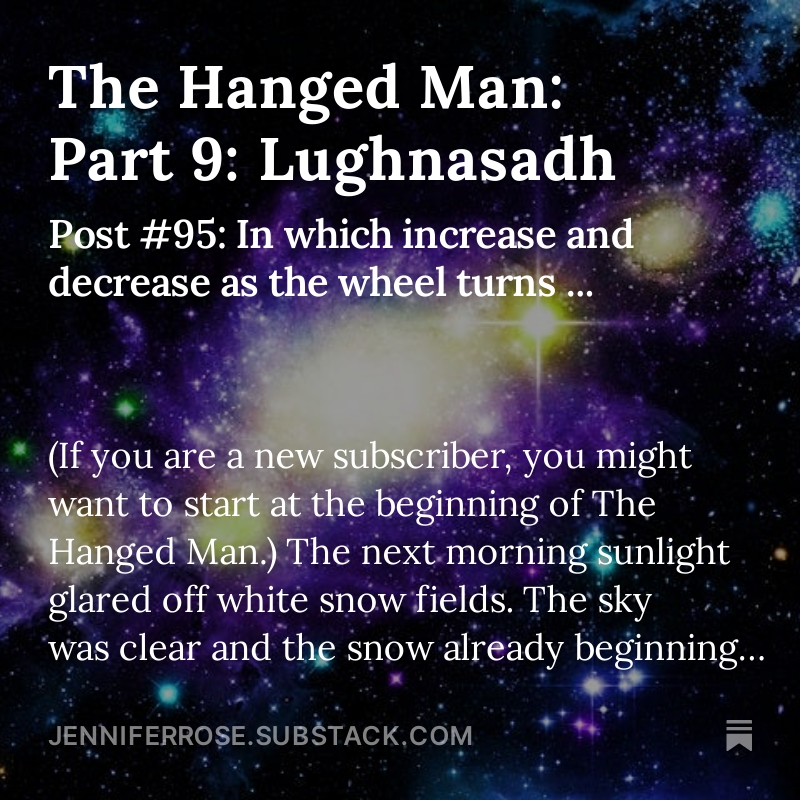
by Jenny Rose | Nov 4, 2023 | Emotional Intelligence, Feelings, Love
Elizabeth Gilbert is on Substack, and I follow her. Best known for her breakout novel, Eat, Pray, Love, she’s a journalist, speaker, and writer. Her Substack is called Letters From Love and more than ten thousand subscribe.
Letters From Love is the most uncomfortable Substack I read. I write that statement with wry humor. The premise is writing love letters to oneself.

Photo by Angelina Litvin on Unsplash
When I first came across it, I was equally horrified and attracted. I poked around, reading here and there, and realized quickly Elizabeth and I share certain experiences. I already knew this, because years ago I came across her brilliant piece on tribal shaming, which I immediately blogged about.
It takes one to know one.
When I found Gilbert on Substack I subscribed, so her newsletter comes regularly into my Inbox. Sometimes I ignore it for days, but sooner or later I open it and read. She posts love letters she’s written to herself. Publicly! She also has a podcast, does interviews, and posts love letters others have written to themselves.
(Cringe.)
I can’t help but notice my violent reactions. Me being me, I don’t choose to turn away and read something more comfortable. I have questions. What is my deal? I’ve been working for more than ten years on self-care and self-love, on reparenting myself and healing old trauma. Why am I not delighted with the idea of a practice of writing love letters to myself?
(Shudder.)
My first reaction is to crawl through the screen and beg her not to expose herself like this. Beg them all not to expose themselves. Don’t they understand how dangerous it is? Haven’t they learned a display of this kind of vulnerability will attract destroyers with stones and blades and (worst of all), terrible, terrible words of contempt? Oh, and don’t forget lethal indifference.
(If you’re not paying attention, I’ve now told you everything you need to know about the way I grew up.)
Except clearly the sky is not falling. More than ten thousand people are reading Gilbert’s love letters, and she goes on writing and publishing. The discussions within her community are neither indifferent nor contemptuous. On the contrary, they’re supportive and tender.
Which leads me to conclude my red alert reaction is about me rather than the practice of writing love letters to oneself.
Hm.
How can they do this? I wondered.
Could I do this?
No, no, no, not to publish! I reassured myself hastily. Just for me. Like my journal. My eyes only. A delete key. No one ever needs to know.
But there was a problem. Elizabeth writes to herself with endearments. Creative, funny, quirky endearments, like “my glinting little piece of foil from a gum wrapper.”
OK, now that’s fun! Words are so much fun!
What kind of endearments would I address myself with?
I’ve had pet names for my kids and my animals. No one else, really. Certainly not myself. My tone with myself has mostly been the harsh, hectoring, contemptuous, cold voice I internalized from the adults around me as a child.
More discomfort.
But, words … If I had a child just like the child I was, what endearments would make her giggle and feel loved and seen?
So I started a list of whimsical endearments. A very private list. So don’t ask! I was a little ashamed of myself, but no one else need ever know …
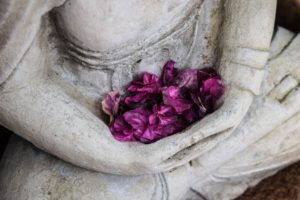
Photo by Chris Ensey on Unsplash
The list was fun, because it was a creative exercise. I can do creative exercise. It occurred to me part of my resistance to love letters (either giving or receiving) has to do with my disbelief in words. (Ironic.) Words can say anything. People say anything. The proof is in action. The older I get, the less interested I am in words, and the less I believe them. Demonstrate. Act. Show me, don’t tell me. As I’ve worked to heal I’ve developed routines for self-care, for eating well, for exercise, for sleep, for writing. I’ve been successful, and take much better care of myself than I ever have before. I take better care of myself than anyone ever has before, in fact.
But I haven’t written love letters to myself. I would have told you I could do so, if I wanted to. If I thought they’d have value. If I thought I’d believe them …
I grew up with emotional withholding. I’ve believed I’ve broken that pattern with my own children and my loved ones, including my animals. But now I wonder. Isn’t demonstration of love with no words a little sterile? I know the mixed message of loving words and abusive actions is devastating. Is active demonstration of love without words also confusing? Am I withholding from myself? Obligation, responsibility, duty – all these I’m very good at. But those are stony words. Where is the tenderness, the humor, the generosity? How about compassion? I feel those for others. I’ve spoken them from the heart; written love poems, love letters, notes, and cards – for others. Could I learn to feel and express them for myself?
Then I got sick with COVID, the events of the last couple of years (traumatic, protracted move; my mother’s decline and death) caught up with me, and I felt miserable. At once, I began putting pressure on myself to get back to writing, get back to work, get back to exercise, take out the trash, do the shopping, and generally pull myself together, because, after all, the world is full of bleeding, suffering people and I have a good life, a privileged life, and don’t deserve to feel sorry for myself and be lazy.
Not a love letter, in other words.
In the middle of the week during which I sat on the couch, alternately shivering and burning and blowing my nose, I wrote myself a love letter.
Well, maybe a let’s-see-if-I-can-tolerate-you letter.
It was an extremely strange experience. In fact, it made me cry, which didn’t help my congestion. Or my cough. At the time I had no sense of taste or smell, and I reflected that it was like that. When I tried to turn toward myself with love, tenderness, affection, whatever you want to call it, there was nothing. Just … nothing. A thick, numb shell between me and myself.
It made me so sad. Immediately upon the heels of that, I was ashamed. Because, you know, self-pity.
Almost as bad as self-love.
Wait now, what?
It’s bad to love yourself … if you don’t deserve it.
And, readers, I thought I’d left that belief far behind in the dust.
Then I began to feel angry, and I told myself I was going to start practicing writing love letters to myself. Because I deserved and deserve love as much as anyone else. I’m not important enough to be the most loathsome person in the world.
Questions:
- How does the idea of this practice make you feel? Can you write a love letter to yourself? With endearments and everything?
- If you could write a love letter to yourself, how would you feel about making it public?
- What do you most need to hear from someone who loves you? Would it have power if you wrote it to yourself?
Leave a comment below!
To read my fiction, serially published free every week, go here: 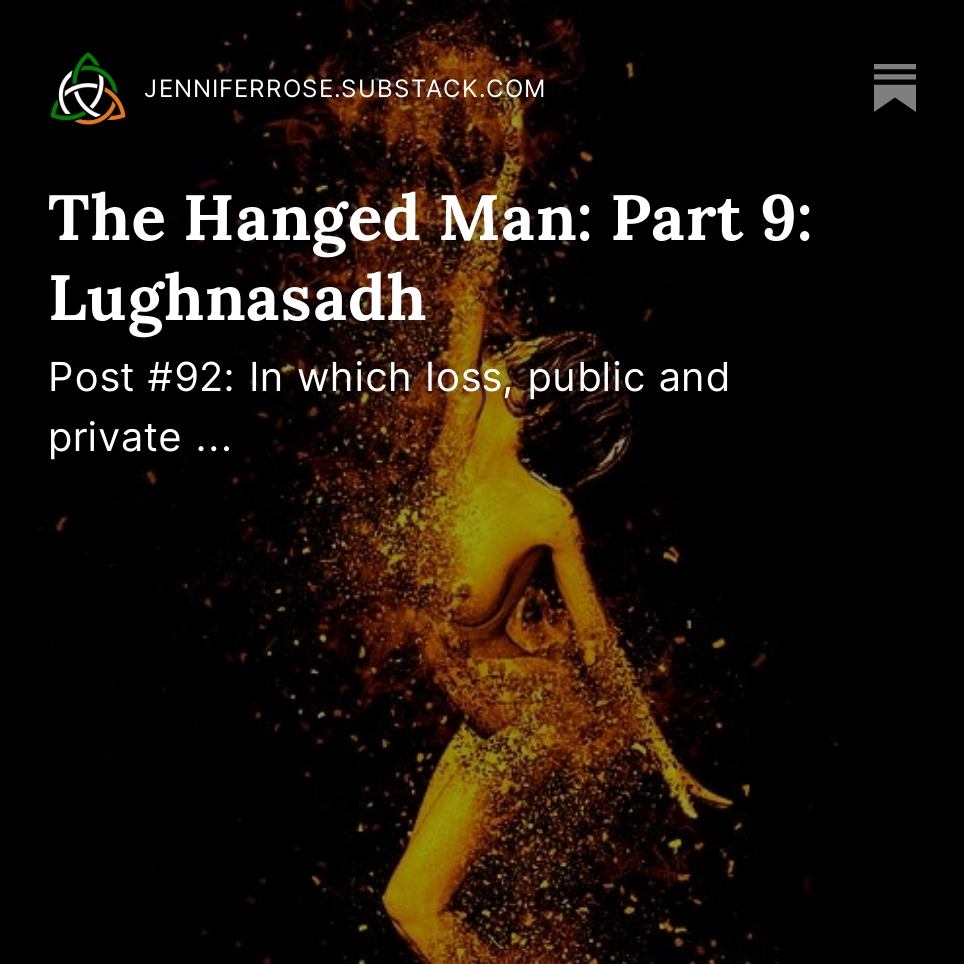
by Jenny Rose | Jun 10, 2023 | Connection & Community
I’m living inside this poem right now:
Ozymandias
I met a traveller from an antique land
Who said: “Two vast and trunkless legs of stone
Stand in the desert … Near them, on the sand,
Half sunk, a shattered visage lies, whose frown,
And wrinkled lip, and sneer of cold command,
Tell that its sculptor well those passions read
Which yet survive, stamped on these lifeless things,
The hand that mocked them, and the heart that fed:
And on the pedestal these words appear:
‘My name is Ozymandias, king of kings:
Look on my works, ye Mighty, and despair!’
Nothing beside remains. Round the decay
Of that colossal wreck, boundless and bare
The lone and level sands stretch far away.”
–Percy Bysshe Shelley
I want to escape this haunted place, walk away, never look back, forget, and wander among green trees, feeling their breath on my face. I want the blessing of the rain on my skin, to plunge my hands into rich soil, lie open to birdsong and the sun’s touch.
I want to be free.
Yet, again and again, I find myself crouching in front of that shattered visage, tracing the frown, the wrinkled lip, the sneer of cold command, unable to leave it or look away. I remember, and weep, and try to understand how something so mighty, so powerful, can fall and break apart, become nothing more than a colossal wreck in a desert in an antique land, unvisited, unremarked, nothing but time’s debris.
I was born in the shadow of those stone legs. I watched the sculptors at work, perfecting, shaping. I learned to worship Ozymandias, to make myself small before him, to endure his stony displeasure and indifference.
I did not know his name for a long time, not until I read this poem in high school. He was called Money. He was called Status. He was called Power. He was king of kings – that I never doubted. He required unceasing sacrifice; though I sacrificed everything I had, the sneer and wrinkled lip looked down upon me in infinite contempt. I looked upon his works and saw destruction and anguish. I saw lies and shattered lives and I despaired.

By Wei Gao on Unsplash
I left. I crawled away under the weight of my own inadequacy and unworthiness, across the lone and level sands, feeling his stone gaze upon me. I left, and one day I got to my feet and walked, and then I remembered how to dance, and swim, and the world opened up for me, showing me friendship, healing and joy.
Then, across the years, across the miles, Ozymandias fell, and the ground of my being has shuddered and convulsed with the impact ever since.
Understand, when he fell it all fell. Secrets lay revealed. Lies tumbled naked in the desert sun. Ozymandias, so carefully sculpted by generations before me, disintegrated. I understood then what I was taught to call Money was really named Fear. Status was in fact Shame. The wrinkled lip and sneer of cold command were not love, were never love. The king of kings lay forgotten, impotent, slowly wearing away to sand.
“Look on my works … and despair.”
It’s all gone, the gods of my childhood, the king of kings, the money, the status, the false power.
All gone.
Except for me. I am not gone.
In Maine, I eat and sleep. I journal and write. I walk to work, talk to people, laugh, teach. I sweat on the elliptical and exercise in the pools. I pay bills, make plans, file papers. I buy groceries and cat food. I do laundry and clean. I work in the garden. I’m distracted and absentminded, prone to sleeplessness and unexpected fits of tears welling from some deep unaware place. Or, on the other hand, maybe that place is all I’m truly aware of right now.
I talk and text and email to staff at the memory care center in Colorado where my mother resides, to her hospice team, to people at the agency we’ve now hired by request to provide extra caregiving. I hear about dementia, combative behavior, falls, sabotaged bed alarms, incontinence, sleeplessness, anxiety, medication adjustment. I am called to calm Mom down as though that was ever possible, as though she trusts me or ever took any comfort from me.
And part of me kneels in the desert, watching the family money (a mere pittance, judged by today’s standards rather than those of 100 years ago) and pride, that towering edifice more important than love, more important than health and happiness, more important than anything, sink into the desert like water. Is the desert powerful enough to cleanse it? Shattered Ozymandias still frowns, wrinkles his lip, sneers his cold command, but his works have disappeared even as he himself wears away.
Do I grieve or rejoice? I try to understand. I try to feel something more than despair at the waste of lives, at the dearth of love.
One thing I know: I will not stay here, beside Ozymandias. It’s a cursed place, a dark place. I will leave it to the circling vultures, the sun, the wind, and the silence. I will leave it to Time to wear away the sneer, the frown, the wrinkled lip, the trunkless legs. I left once, and I will leave again. I know this desert is a small place and the world is wide. I know who I am now. I know what love is, and that I’m capable of it. I am no longer alone.
I would have saved my family if I could have, but my gifts have no monetary value. What I have to give, what I am, cannot be bought or sold. I do not accrue a good rate of interest. I was not judged a sound investment. I did not increase my family’s status. Ozymandias, king of kings, was incapable of seeing or knowing me, being far too dazzled with his mighty works, dissolving now into sand while I myself, still vital and alive, pause to find absolution and mourn, groping for a way forward, watching it all decay.
Questions:
- What idols have fallen in your life?
- What family secrets have you discovered?
- Do you find comfort in the eventual fall of what once seemed all-powerful, or does it frighten you?
- How have you challenged your family’s definition and expectations of you?
Leave a comment below!
To read my fiction, serially published free every week, go here: 
















